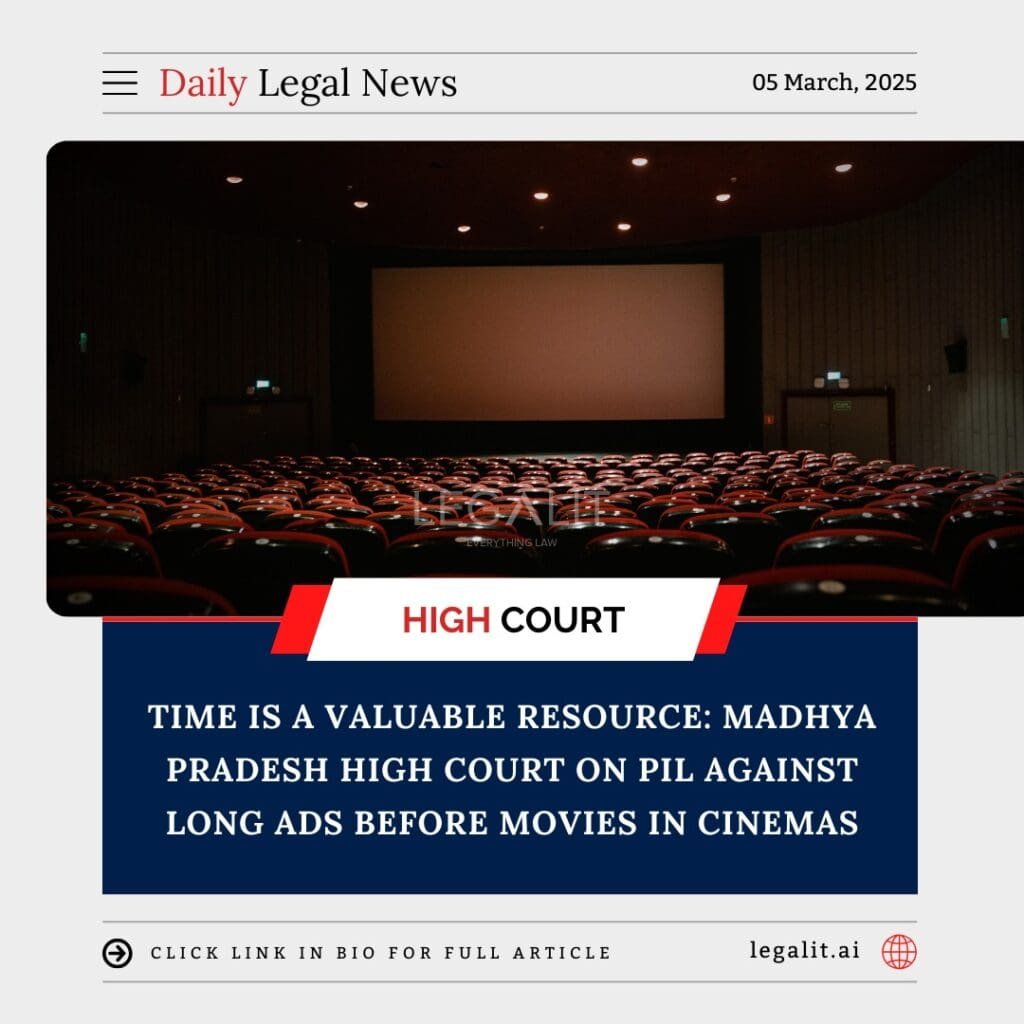
Background
The Madhya Pradesh High Court recently addressed a Public Interest Litigation (PIL) challenging the prolonged advertisements shown before movies in cinemas. The petitioner argued that excessive ad durations inconvenience viewers who pay for a specific movie timing but are subjected to extended commercial content before the film starts.
Court’s Rationale
The court emphasized that time is a crucial resource and should not be wasted unnecessarily. It observed that while advertisements are a legitimate revenue source for theaters, they should not infringe upon the audience’s time unfairly. The court noted that moviegoers purchase tickets for a scheduled screening, and extending the runtime with long ad breaks might amount to unfair business practices.
Existing Measures
The Cinematograph Act, 1952, and guidelines from regulatory bodies like the Central Board of Film Certification (CBFC) govern the content and duration of advertisements in cinemas. Additionally, the Consumer Protection Act, 2019, ensures that consumers are not subjected to unfair trade practices. However, there are no strict regulations on the maximum duration of ads before a movie screening, leading to concerns raised in the PIL.
Conclusion
The Madhya Pradesh High Court’s remarks highlight the importance of striking a balance between commercial interests and consumer rights. The case underscores the need for clear guidelines to regulate ad durations in cinemas, ensuring that audiences are not unduly burdened with excessive commercials before watching a film.